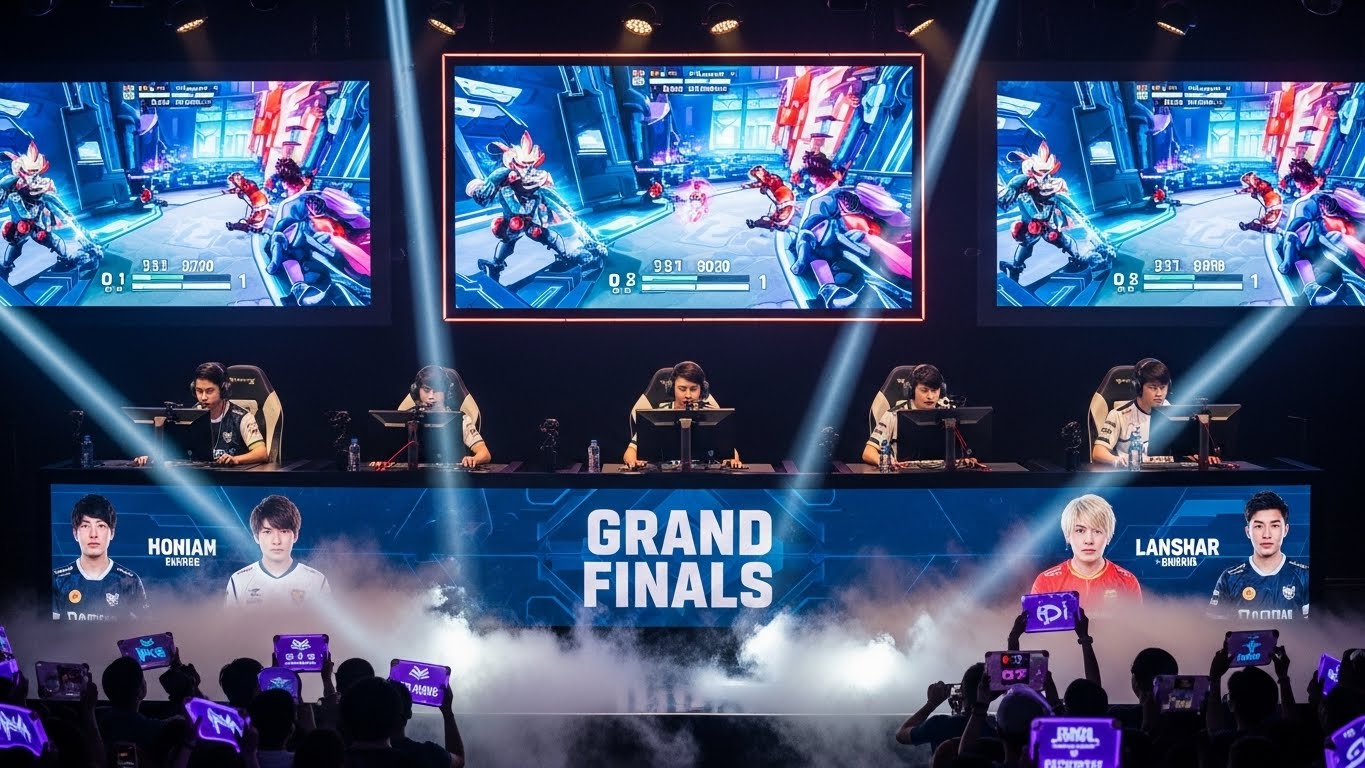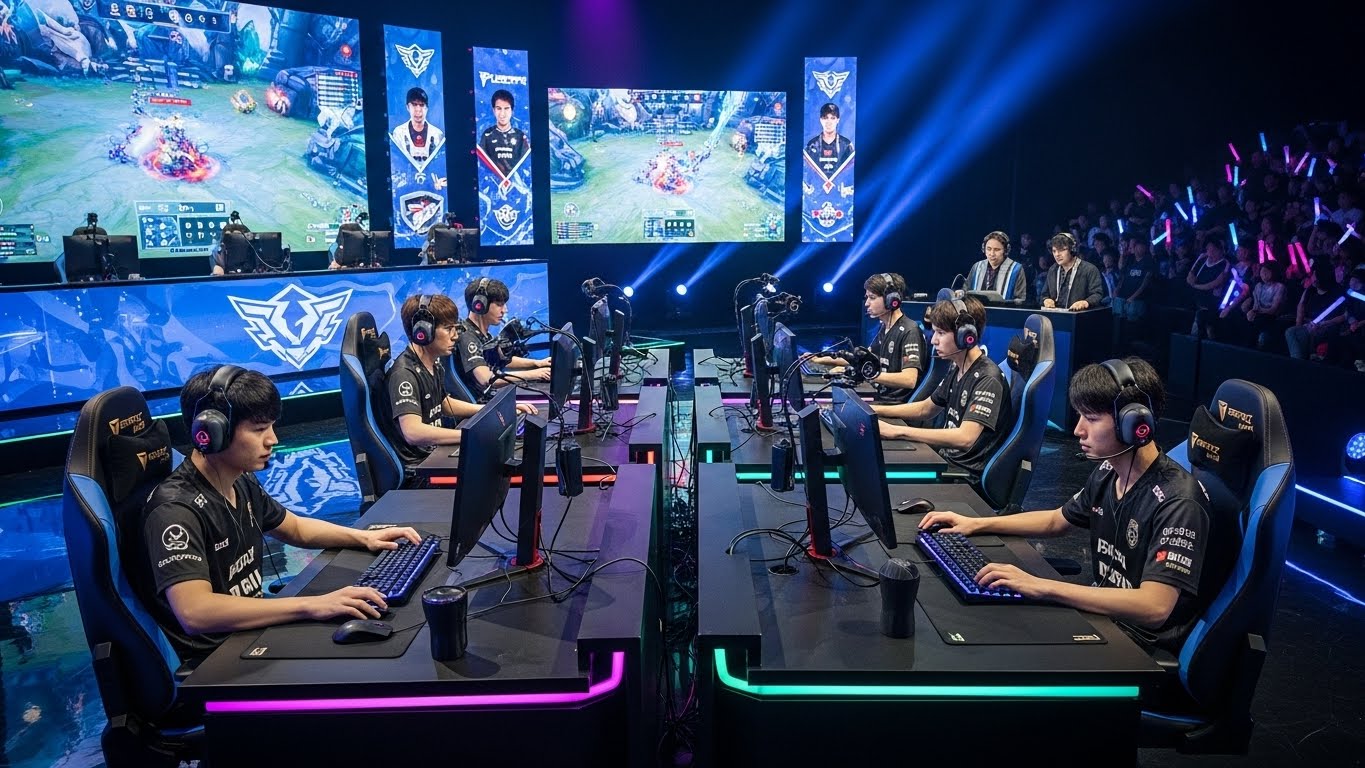Esports has emerged as one of the fastest-growing industries in the world, providing not only entertainment but also significant career opportunities for young people. What was once considered a hobby — playing video games competitively — has now become a legitimate career path. From professional players to coaches, analysts, content creators, and event managers, esports offers a variety of roles that can help youth build meaningful and sustainable careers.
This blog explores how esports supports career development for young people, the diverse opportunities it provides, and the skills it cultivates that are valuable both within and outside the gaming world.
Esports as a Viable Career Path
For many young people, traditional career paths such as medicine, engineering, or business may feel restrictive or unappealing. Esports provides an alternative avenue where passion and talent can translate into professional success.
The industry has expanded rapidly, with professional tournaments offering prize pools in the millions, sponsorship deals, and global recognition. Games like League of Legends, Dota 2, Valorant, Fortnite, and Counter-Strike: Global Offensive have professional leagues with structured seasons, contracts, and international competitions. This professionalism allows young players to see a clear pathway to a career in esports, whether as players or in supporting roles.
Opportunities for Youth in Esports
Esports provides a broad spectrum of career opportunities beyond playing professionally. Some of the key roles include:
1. Professional Players
The most obvious career in esports is becoming a competitive player. Youth with exceptional skills, strategic thinking, and dedication can join professional teams, participate in tournaments, and earn salaries, prize money, and sponsorship deals.
Success as a professional player requires discipline, practice, and mental resilience. Players must maintain their performance, learn new game strategies, and collaborate with teammates — all of which contribute to personal and professional growth.
2. Coaches and Analysts
Just like traditional sports, esports teams rely on coaches and analysts to gain a competitive edge. Coaches help players improve mechanics, communication, and teamwork, while analysts review gameplay data, study opponents, and develop strategies.
Young people with a strong understanding of game mechanics, critical thinking skills, and attention to detail can build careers as coaches or analysts, supporting teams’ success and learning valuable analytical skills along the way.
3. Content Creators and Streamers
Streaming platforms like Twitch, YouTube Gaming, and Facebook Gaming have opened new avenues for youth to monetize their gaming skills. Content creators produce gameplay videos, tutorials, entertainment content, or live streams, engaging audiences and building personal brands.
Successful streamers can earn revenue from sponsorships, subscriptions, donations, and ad partnerships. This role encourages creativity, communication skills, and digital marketing knowledge — skills that are transferable to other industries.
4. Event Organizers and Managers
Esports tournaments require meticulous planning, including scheduling, logistics, marketing, and audience management. Youth interested in management, marketing, or event planning can find careers organizing esports events, both online and offline.
Event management in esports teaches skills such as leadership, coordination, and technical problem-solving — all valuable in traditional business and entertainment sectors.
5. Esports Journalism and Media
The growth of esports has created a demand for journalists, content writers, video editors, and commentators. Youth passionate about gaming and communication can pursue careers covering tournaments, interviewing players, and producing media content.
This career path develops research, storytelling, and multimedia skills, which are highly valued in broader media and communication industries.
6. Game Development and Design
Exposure to esports can inspire youth to pursue careers in game development, design, and programming. Understanding the competitive scene helps developers create balanced, engaging, and esports-friendly games.
Roles in this sector include game designers, programmers, UX/UI designers, and QA testers. Esports experience provides insight into player behavior, mechanics, and competitive dynamics, making young professionals valuable assets to gaming studios.
Skills Youth Develop Through Esports
Even for those not pursuing esports professionally, involvement in the industry cultivates transferable skills that benefit future careers. These include:
- Teamwork and Collaboration – Working with teammates in competitive games improves communication and cooperation.
- Strategic Thinking – Developing game strategies, analyzing opponents, and making real-time decisions fosters critical thinking.
- Time Management – Balancing practice, education, and tournaments teaches discipline and planning.
- Problem-Solving – Facing unexpected challenges in games develops adaptability and resilience.
- Digital Literacy – Operating streaming software, managing social media, and engaging online audiences builds valuable tech skills.
- Leadership – Captaining a team, mentoring younger players, or organizing events enhances leadership and organizational abilities.
These skills are applicable to careers in business, technology, media, and education, making esports a training ground for professional success beyond gaming.
Educational Integration of Esports
Schools, colleges, and universities increasingly recognize esports as an educational tool. Many institutions have launched esports programs, offering scholarships, competitive leagues, and structured training.
Programs often combine gaming with learning about management, marketing, and technology. This allows youth to gain academic credit, develop technical skills, and prepare for careers in esports or related industries.
Some universities even offer degrees in esports management, game design, and digital media, reflecting the industry’s growing legitimacy and career potential.
Mentorship and Networking Opportunities
Esports also provides youth with mentorship opportunities. Professional players, coaches, and industry professionals often share insights, advice, and guidance, helping young talent navigate their careers.
Networking within esports communities can open doors to internships, sponsorships, content collaborations, and professional growth. Building relationships with established figures accelerates learning and career development, providing practical experience and industry connections.
Breaking Stereotypes and Building Confidence
Participation in esports helps youth overcome stereotypes associated with gaming. By demonstrating professionalism, discipline, and teamwork, young players prove that esports is a legitimate and respected career path.
Competing in tournaments, streaming, or managing esports projects also builds confidence, public speaking skills, and personal branding — all essential for professional success in any field.
Global Examples of Youth Success in Esports
- Kyle “Bugha” Giersdorf: Won the Fortnite World Cup at age 16, earning $3 million and gaining global recognition.
- Arslan “Arslan Ash” Siddique: From Pakistan, rose to international fame by winning multiple Tekken tournaments, inspiring young players in his country.
- Team Liquid Academy Players: Many young academy players have transitioned into professional teams, showcasing structured pathways for youth in esports.
These examples demonstrate how dedication, skill, and proper guidance can turn a passion for gaming into a career with global impact.
Conclusion
Esports provides youth with unparalleled opportunities to build careers, whether as professional players, coaches, content creators, event organizers, or industry professionals. Beyond direct employment, it cultivates critical life skills such as teamwork, strategy, leadership, and resilience.
By combining passion with professional development, esports empowers young people to pursue meaningful careers in a rapidly expanding industry. As the esports ecosystem continues to grow, it will offer even more avenues for youth to transform their love for gaming into long-term success, proving that competitive gaming is more than entertainment — it’s a gateway to professional growth and opportunity.



